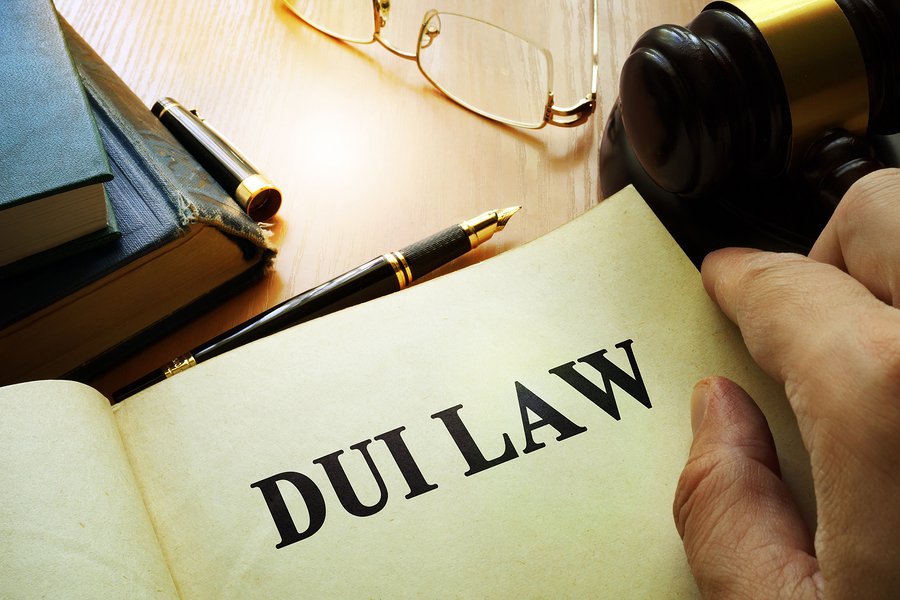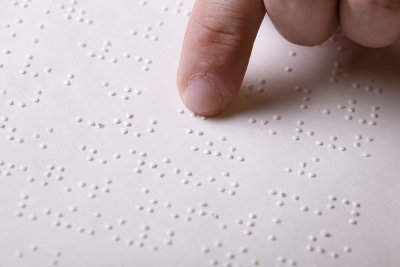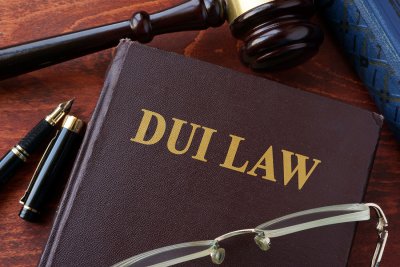-
FAQs and Answers About Maryland’s DUI-Related AEP Requirements
Maryland’s Alcohol Education Program, or AEP, is a rehabilitation initiative for people who have been convicted of DUI or DWI. If your attorney in Baltimore advises you to attend one of these programs as a result of your court case, here is a look at what you need to know.

What exactly is the AEP?
Maryland’s AEP is a 12-hour class designed to educate people about alcohol use and abuse as well as the risk of driving while intoxicated. It is frequently required for people who have been convicted of DUI or DWI before they can regain their licenses. In some cases, a 12-hour AEP program is recommended by the court in lieu of jail time or other penalties, especially for a first offense. If the court has identified you as an alcohol abuse or alcohol dependent, you may be required to take a longer program than the 12-hour AEP.
What are some reasons I may need to take the AEP?
You could be referred to the AEP on the recommendation of a district court judge or by an administrative law judge from the Office of Administrative Hearings. If your license was revoked because of an alcohol-related offense, you will be referred to the AEP when you apply to have your license reinstated. Your lawyer may request that you be referred to the AEP as well to reduce some of the other potential punishments associated with your DUI or DWI conviction.
What are the consequences of not attending the AEP?
When you are referred to the AEP, you must begin the class within 90 days of your referral. If you do not, then you will receive a letter telling you that you are required to surrender your license to an MVA location. You will need to complete the course before you can get your license back. If you were instructed to attend the AEP in lieu of another punishment, the court may enforce that punishment instead.
If you are in need of a DUI defense attorney, contact Jack J. Schmerling Attorney at Law today!
-
How to Deal with a DUI or DWI, From Start to Finish

It’s a very difficult situation if you find yourself or a loved one arrested for a DUI (driving under the influence) or DWI (driving while intoxicated). While it’s a situation that no one wants to find themselves in, unfortunately, it can happen. While it’s vital to make sure you seek counseling and therapy throughout the entire process to make sure you’re dealing with it properly, it’s also important to take care of the legal aspects, which can be very daunting. To help make an already difficult time easier, Jack J. Schmerling is here to provide advice on how to proceed after a DUI or DWI.
What To Do After a DUI or DWI
Police officers can generally use three methods to determine if you’ve had too much to drink. They can observe you and pull you over if your driving is suspicious; they can ask you to perform a sobriety test, such as performing balance or speech tests; or they can also measure your blood-alcohol level. You can refuse taking a chemical test at a DUI or DWI stop, but this generally means implied consent. This states that refusal could lead to suspension of your license for between 3 to 12 months, even if you’re eventually found not guilty. Do note that if the case goes to trial, this could lead jury members to believe you refused because you actually were intoxicated or under the influence.
Sometimes you’ll have to appear for an arraignment, a court appearance where you’re formally charged and asked to respond by entering a plea. You’ll be asked to plead either guilty or not guilty. Having an attorney at this stage is usually unnecessary; you can always change your plea later. You can usually insist on a jury trial as well, and you should deny convictions so your attorney can challenge their validity later.
It’s difficult to defend a drunk driving charge, since it involves a keen understanding of scientific and medical concepts. Hiring a lawyer who has a specialty in these cases is paramount to making sure you receive effective legal counsel. If the police don’t have physical evidence, it’s possible an attorney could plea your case to what’s called a “wet reckless”; while it doesn’t sound as bad as a DUI, it tends to carry the same fines and penalties.
After being released, your options include pleading guilty, asking for a trial before a judge, or trying to plea bargain. Consulting with your lawyer is strongly recommended. You will understand if it’s best to fight the charge or plea bargain, and much of this depends on your recorded blood alcohol level. No matter what route you want to take, getting an attorney is in your best favor to make sure you can navigate the legal field of life after a DUI or DWI.
How Do I Proceed?
To help you proceed in the difficult time after you or a loved one has been charged with a DUI or DWI, please get in touch with us at Jack J. Schmerling, Attorney at Law. Throughout Glen Burnie, MD, we’re available for legal counsel. For a free evaluation, call us today at (410) 988-4956.
-
Will Noah’s Law Affect You?
DUI laws often change, but a lawyer in Baltimore can inform you of any legal changes that could affect the outcome of your drunk driving case —such as Noah’s Law. As this featured video explains, Noah’s Law was named in honor of police officer Noah Leotta, who was struck and killed by an impaired driver in 2015. Noah’s Law went into effect in October 2016.
The law sets stricter penalties for individuals convicted of DUI. For a first-time offense, they are required to use an ignition interlock device for six months. A second offense results in one year, and three offenses or more result in three years. Noah’s Law also increases the amount of time drivers will have their licenses suspended for impaired driving.
-
Be Prepared for Accidents
The steps you take after a car accident in Baltimore can have a significant impact on your ability to file an accident injury lawsuit in the future. Watch this video to prepare yourself to act if an accident happens to you.
In the immediate aftermath of the car accident, the first priority is getting emergency medical attention if necessary. Call the police to the scene of the accident, and document the location, make and model of other vehicles, and road conditions, using photos if possible. Exchange information with the other driver, but don’t discuss the details of the collision. Go the hospital or your doctor for an exam after the accident, even if you don’t think you’re injured. Some common car accident injuries, like whiplash, don’t cause symptoms right away, so it’s important to see a doctor for diagnosis and to document the injuries as soon as possible.
-
Qualifying for Disability with Low Vision or Blindness
If you are living with low vision or blindness, you could qualify for Social Security disability benefits. However, the qualification requirements are strict and the procedure is lengthy, so it is helpful to have an experienced attorney in Baltimore to assist during the approval process. Here is what you need to know about applying for disability benefits for low vision or blindness.

How does the Social Security Administration define blindness?
In order to be considered blind under Social Security guidelines, you must not be able to correct your vision to better than 20/200 in your better eye for a period of at least 12 months or a period that is expected to last for at least 12 months. Alternatively, you can have a visual field of 20 degrees or less in your better for the same time period. If your vision doesn’t meet the definition of blindness but you have low vision that prevents you from working either alone or in conjunction with other health issues, then you still may be eligible for benefits.
What kind of disability benefits can I receive?
Two disability programs may provide benefits when you’re blind or have low vision: Social Security Disability Insurance (SSDI) and Supplemental Security Income (SSI). SSDI is based on credits earned while working, so you are only eligible for it if you have ever had a job, or in some cases, based on your parents’ or spouse’s earnings. SSI is not based on past employment, so you are eligible for these benefits even if you don’t have any work history.
How do I apply for benefits?
Although you can apply for benefits by contacting the Social Security Administration on your own, having a lawyer guide you through the process is recommended. Many people are rejected for benefits on their first try, and having an attorney can help you avoid an initial rejection and the need to appeal. An experienced attorney knows how to avoid application errors and build your case effectively.
-
Do’s and Don’ts to Know After a Drunk Driving Arrest
Being arrested for a DUI can have serious repercussions, but the steps you take in the immediate aftermath of your arrest can have important implications for your case. The first step is to call an attorney in Baltimore with experience in DUI cases. If you find yourself facing a DUI arrest, these do’s and don’ts will help you protect your rights and mitigate the fallout.

Don’t Discuss Your Case
After an arrest, most people know that they shouldn’t discuss their case with the police without an attorney present. What many people don’t realize is that you shouldn’t discuss your case with anyone except your lawyer until it has been settled. Giving details about the circumstance of your arrest and your actions leading up to it could end up being harmful to your case if you say something incriminating that is repeated to prosecutors or the police. Keep all of the details of your case between you and your attorney until it has concluded.
Do Work Closely with Your Attorney
You and your attorney will need to work hand-in-hand on preparing your defense. In the aftermath of your arrest, it can be helpful to write down everything you can remember about your arrest, including details about your interactions with the arresting officers, what kind of instructions they gave you, and how your sobriety test was conducted. This information will help your attorney determine if your arrest was legal and if your rights were violated in any way. Throughout your case preparation, provide your attorney with any information that is requested as quickly as possible, and attend all meetings and court dates.
Don’t Drive on a Suspended License
If your license is suspended after your DUI, do not drive. If you are caught, the consequences can be severe and may include significant fines, additional license suspension time, and incarceration. Your attorney can help you negotiate with the court to get permission to drive for necessary trips, such as to work or to pick up your children from school.
RECENT POSTS
categories
- Uncategorized
- Worker's Compensation
- Attorney Fees
- Auto Accident Injury Whiplash
- Attorney Review
- Personal Injury
- Social Security Disability
- DUI
- Workplace Injuries
- Auto Accident
- Workers Compensation Claims
- Permanent Disability
- Infographic
- Drunk Driving
- Wrongful Death
- Works in Maryland
- Uninsured Motorists
- Motorcycle Crashes
